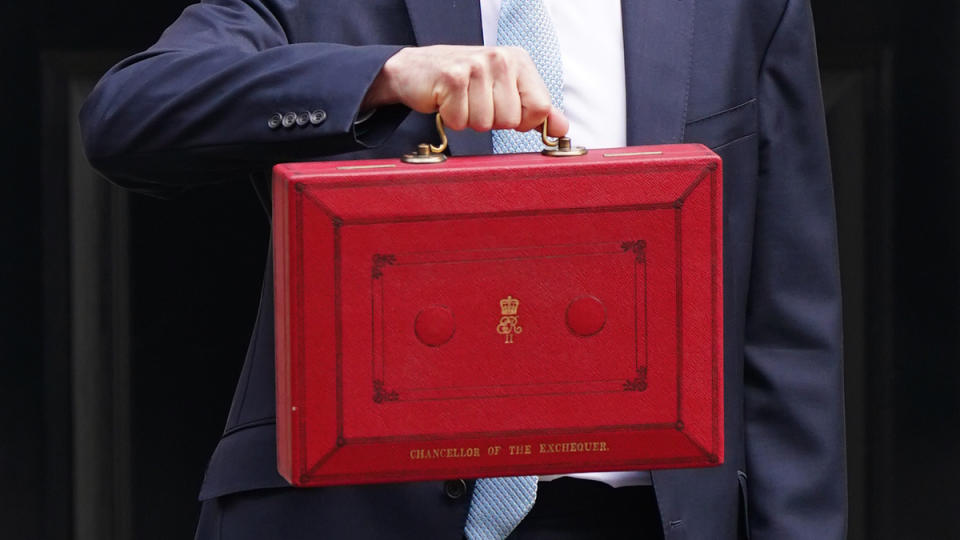Some big changes to the tax system no one is telling you about…

The Budget did little to move the polls, but it included some fundamental philosophical changes to the way we pay tax. Expect unintended consequences, says Tim Sarson
Budgets are fleeting spectacles. Like a passing squall they arrive with a few gusts of media speculation, dominate the news for a week at most, then blow themselves out pretty quickly as the political calendar moves on to the next thing.
We are already so over this month’s event that journalists are starting to talk about yet another one in autumn. When I said last month that we should assume this spring Budget would be the last before an election, I hadn’t reckoned on how tenacious the Government have become in their quest to find a wedge issue ahead of the election. Nothing the Chancellor announced seems to have shifted the polls, so it seems like we’re in for one last heave in September, if the OBR plays ball.
But forget the evanescent nature of the headlines; the changes that chancellors introduce in these events can occasionally have quite profound long-term consequences for the economy and the structure of the tax system. This was one of those budgets.
Firstly, where it takes us fiscally. Despite a couple of tax rises, the Treasury is now operating with less fiscal headroom than at almost any time in the last couple of decades. Those NI rate cuts were expensive, and even with continued spending restraint this means that any downside surprises in the public finances could take it close to breaking its own fiscal rules. This brings the inevitable reckoning closer. Barring some 2024 economic miracle, further tax cuts in autumn could use up the remains of any potential headroom.
Whichever government assumes power after the election will need to make sweeping cuts to already creaking public services or ratchet up some significant tax rises. Or they will need to overhaul our fiscal rules and hope the bond markets play along.
Then there’s the structure of the tax regime itself. I suggested last month that the Chancellor might want to use his Spring Budget to fix some of the long-term distortions in the system with a view to posterity, and to an extent he did just that. He went some way towards reducing the punitive marginal rates for working parents earning over £50,000, and rebalanced payroll taxes away from National Insurance to Income Tax, both as predicted last month. His ambition to phase out NI altogether is all about posterity and little to do with current fiscal reality.
He also raised the VAT registration threshold a little, again as predicted, though far from dealing with the registration cliff edge it simply kicks the can a few centimetres down the road. The cut to capital gains on residential property goes against the grain and achieves the opposite. It increases the distortive gap between CGT and income tax rates.
Perhaps more fundamental are two philosophical changes buried in the announcements.
With the hasty dismantling of the non-dom regime we find large chunks of the tax code moving from a domicile to a residence basis. This affects Inheritance Tax as well as the income taxes of mobile individuals and in theory it reduces the importance of “Britishness” in our system. Home will be where you live long term, rather than where your heart is. The wider behavioural impact of these changes will be fascinating to watch. Expect a few of those unintended consequences to pop out of the woodwork in the coming years.
Hunt promised a more fundamental overhaul of the Higher Income Child Benefit Charge which if it went ahead would also herald a long-term shift from individual to household-based taxation. That’s a pretty big deal. Quite common in other European countries but not here. Tax changes like these, made with little fanfare, have social effects way beyond their financial impact. I don’t think that was the intention. Simply the logical consequence of trying to fix a rate anomaly.
Those are major shifts in the principles underlying our system. Extending full expensing to leased assets (“when affordable”) isn’t. It’s the essence of niche to most readers. But it’s quite a complex change to effect. And it’s another change likely to influence behaviour in interesting ways, probably boosting finance leasing at the expense of debt financing among other things.
So, it wasn’t just about NI cuts this month. Scratch the surface and there’s a lot more going on. Our final pre-election statement, and the emergency budget that might follow shortly after if the polls are right, will tell us just how much further these changes are likely to go.
Tim Sarson is head of tax policy at KPMG

 Yahoo Finance
Yahoo Finance 